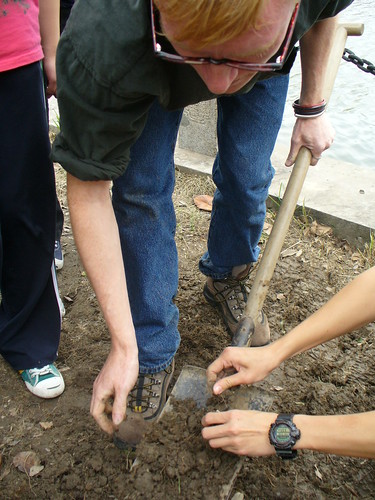Organic gardening can either be a major headache, but also headaches as well. The following suggestions will assist you in becoming an accomplished organic gardener.
Your children will enjoy being involved with you in the organic garden.A garden can provide a wonderful learning experience for children, and it gives you a chance to bond while producing healthy food.
The ambient temperate of a room with live plants is between 65-75 degrees throughout the daylight hours. The plants need this temperature needs to remain warm so they may grow. If you think it would not be comfortable to keep your residence that warm in the winter, you may want to use a heat lamp just for the plants.
Make sure you work in your garden.Don’t spend 30 minutes searching for lost tools. Prepare all the tools you need before you go out to work on your garden, and then put them away neatly when finished. Get yourself a tool belt, or a pair of pants with a lot of pockets.
Pine is a great mulch. Cover the surface of the ground with a two-inch layer of the pine needles; as the needles break down, and they will disperse acidity to the soil below as they decompose.
Coffee Grounds
Put coffee grounds on the soil. Coffee grounds contain many of the essential nitrogenous nutrients that growing plants will utilize.
Your compost pile should contain green plant materials and dried ones in equal amounts.Green plant material comprises leaves, fruit waste, spent flowers, vegetable waste, and leaves. Dried plant materials are things like shredded newspaper, sawdust, shredded paper, cardboard, and dried and cut-up woody material. Avoid ashes, meat, diseased plants and meat-eating animal manure.
Create raised beds with stone, bricks or untreated wood.Choose a wood that is naturally resistant to rot and does not contain any chemicals. Good choices are cedar, cedar and locust. In order to avoid toxic substances from getting into the ground and perhaps into your vegetables, don’t use treated wood since its chemicals can leech into the food crops and soil.If you have some space treated wood, you can still use it, or a different barrier, in order to protect your garden.
Clearly, organic gardening is a more voluminous subject than is commonly known. Organic gardens require much patience and hard work, but you can have a wonderfully beautiful organic garden. When you apply the tips in this article, you will be ready to start improving your skills in organic gardening.

